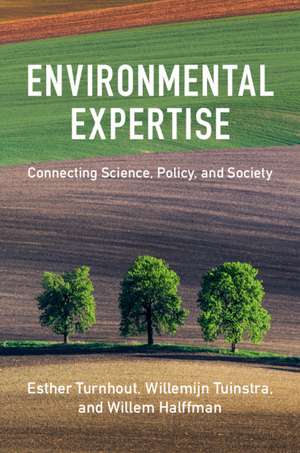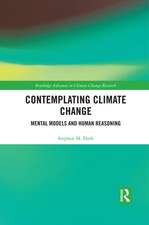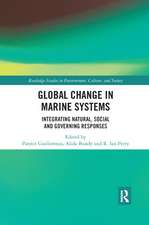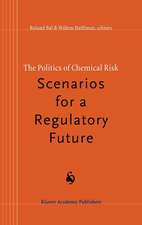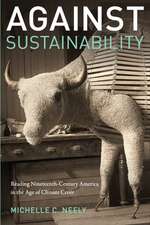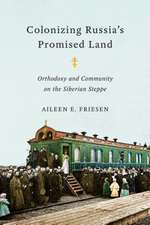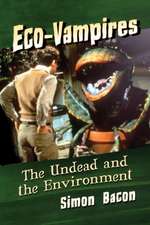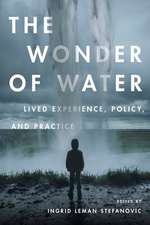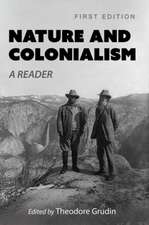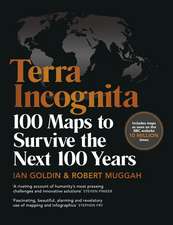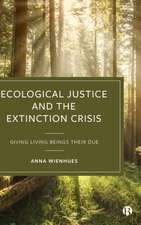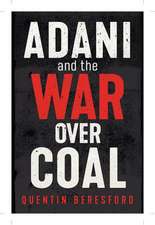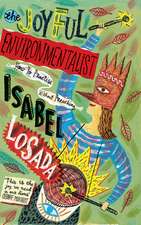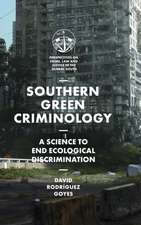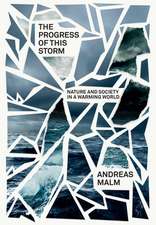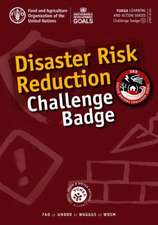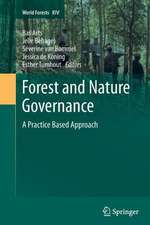Environmental Expertise: Connecting Science, Policy and Society
Autor Esther Turnhout, Willemijn Tuinstra, Willem Halffmanen Limba Engleză Hardback – 20 feb 2019
| Toate formatele și edițiile | Preț | Express |
|---|---|---|
| Paperback (1) | 273.75 lei 3-5 săpt. | +22.70 lei 4-10 zile |
| Cambridge University Press – 20 feb 2019 | 273.75 lei 3-5 săpt. | +22.70 lei 4-10 zile |
| Hardback (1) | 611.33 lei 6-8 săpt. | |
| Cambridge University Press – 20 feb 2019 | 611.33 lei 6-8 săpt. |
Preț: 611.33 lei
Preț vechi: 686.89 lei
-11% Nou
Puncte Express: 917
Preț estimativ în valută:
116.99€ • 121.69$ • 96.58£
116.99€ • 121.69$ • 96.58£
Carte tipărită la comandă
Livrare economică 15-29 aprilie
Preluare comenzi: 021 569.72.76
Specificații
ISBN-13: 9781107098749
ISBN-10: 1107098742
Pagini: 288
Ilustrații: 8 b/w illus. 2 maps
Dimensiuni: 157 x 235 x 16 mm
Greutate: 0.54 kg
Editura: Cambridge University Press
Colecția Cambridge University Press
Locul publicării:New York, United States
ISBN-10: 1107098742
Pagini: 288
Ilustrații: 8 b/w illus. 2 maps
Dimensiuni: 157 x 235 x 16 mm
Greutate: 0.54 kg
Editura: Cambridge University Press
Colecția Cambridge University Press
Locul publicării:New York, United States
Cuprins
List of contributors; Preface; List of abbreviations; 1. Introduction: the plight of the environmental scientist Willem Halffman, Esther Turnhout and Willemijn Tuinstra; 2. What is science? (And why does this matter?) Willem Halffman; 3. Frames: beyond facts versus values Willem Halffman; Case A. Framing climate change Mike Hulme; 4. Science, politics and the public in knowledge controversies Esther Turnhout and Thomas Gieryn; Case B. What does 'climategate' tell us about public knowledge controversies? Silke Beck; Case C. Whose deficit anyway? Institutional misunderstanding of fracking sceptical publics Laurence Williams and Phil Macnaghten; 5. The limits to knowledge Willemijn Tuinstra, Ad Ragas and Willem Halffman; Case D. Angry bulbs Ad Ragas and Marga Jacobs; 6. Usable knowledge: science, policy and society Willemijn Tuinstra, Willem Halffman and Esther Turnhout; Case E. Expertise for European fisheries policy Willem Halffman and Martin Pastoors; 7. Interdisciplinarity and the challenge of knowledge integration Esther Turnhout; Case F. Knowledge integration in the Millennium Ecosystem Assessment Clark Miller; Case G. Integrated assessment for long-range transboundary air pollution Willemijn Tuinstra; 8. Lay expertise Esther Turnhout and Katja Neves; Case H. Lay expertise and botanical science: a case of dynamic interdependencies in biodiversity conservation Katja Neves; Case I. The Loweswater Care Project Claire Waterton; 9. Environmental Experts at the science-policy-society interface Esther Turnhout; Case J. Group Think and whistle blowers in CO2 capture and storage Heleen de Coninck; 10. Environmental knowledge in democracy Esther Turnhout, Willem Halffman and Willemijn Tuinstra; 11. Conclusion: science, reason and the environment Willem Halffman, Willemijn Tuinstra and Esther Turnhout; Inde
Recenzii
'The novel perspectives in this book, as well as its cases and conceptual advances, will come as a welcome resource for those interested in understanding the controversies around the use of environmental expertise. Equally, it will be welcomed by environmental scientists seeking to navigate the shoals of practicing and representing science on the one hand, and effective communication and making a difference in the world on the other.' Arun Agrawal, University of Michigan
'This book is important and timely. There has never before been such great need for evidence to underpin environmental policy, and yet there is also a growing appreciation among researchers of the complexities and risks associated with engaging with the policy community. The book is rooted in the latest theoretical understandings from social science, explained in an accessible way, and it very quickly moves from theory to practice, showing how these insights can inform how environmental scientists work around controversial topics. The use of in-depth case studies complements the widespread use of helpful examples throughout the text. I have found reading this book both inspiring and instructive, and believe that many researchers will benefit considerably from reading it. I will certainly be recommending it to colleagues.' Mark Reed, Newcastle University
'The principal authors have done a very smart and novel job with this book, bringing together insights from environmental science, policy studies, science studies and the philosophy of science in a thoroughly practical way. The book should really help practitioners appreciate ways to handle the complexities of environmental policy-making in contexts of uncertainty, conflicting beliefs and competing societal values.' Steve Yearley, University of Edinburgh
'This book is important and timely. There has never before been such great need for evidence to underpin environmental policy, and yet there is also a growing appreciation among researchers of the complexities and risks associated with engaging with the policy community. The book is rooted in the latest theoretical understandings from social science, explained in an accessible way, and it very quickly moves from theory to practice, showing how these insights can inform how environmental scientists work around controversial topics. The use of in-depth case studies complements the widespread use of helpful examples throughout the text. I have found reading this book both inspiring and instructive, and believe that many researchers will benefit considerably from reading it. I will certainly be recommending it to colleagues.' Mark Reed, Newcastle University
'The principal authors have done a very smart and novel job with this book, bringing together insights from environmental science, policy studies, science studies and the philosophy of science in a thoroughly practical way. The book should really help practitioners appreciate ways to handle the complexities of environmental policy-making in contexts of uncertainty, conflicting beliefs and competing societal values.' Steve Yearley, University of Edinburgh
Notă biografică
Descriere
Provides an overview of the important role that environmental experts play at the science-policy interface, and the complex challenges they face.
